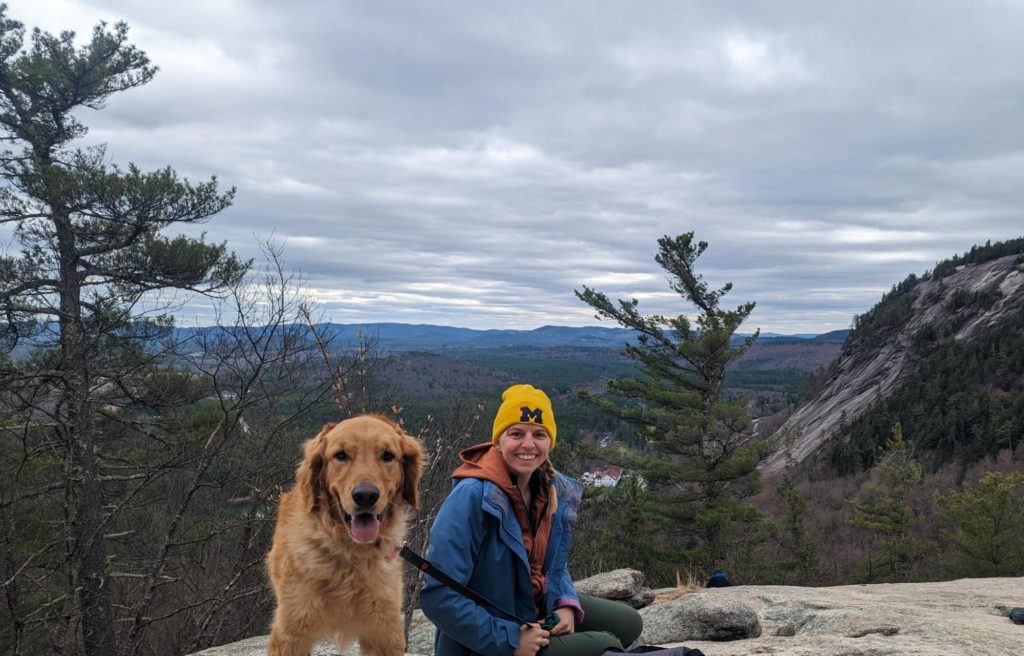In this series, we are profiling ClimateAction.tech (CAT) volunteers and members from around the world to learn more about their climate journeys and lives. Joining us today for a CAT Q&A is Clare Tomassian from Washington, DC area, USA, who started volunteering for CAT in April 2023 and is a moderator in the CAT Slack community.
Tell us a little about yourself, what are you currently working on?

I coach leaders and teams in IT and Product on modern, responsive discovery and delivery approaches. A good portion of my work is based in the Agile framework, but I also weave in design thinking, Lean, organizational psychology, and current business research. I recently joined The Nature Conservancy’s global IT group. I am thrilled to be working for such a storied and climate-focused conservation organization!
I started my career in environmental consulting. My background is in geology and environmental policy. I did original research in both as well as in GIS/remote sensing. As one might guess, that involved a lot of climate- and climate-adjacent topics. I loved the technical aspects of my work in all those areas. However, I struggled a lot with management approaches I found to be either ad-hoc, or overly prescriptive for complex problems. When I landed on a PMO project that was supposed to be a GIS project, I encountered Agile and its related disciplines.
The idea of incorporating people’s humanity and the inevitable variability of complex work into how we lead and manage resonated with me, and I took a career turn to explore that. Bringing it back to an environmental organization makes it full-circle for me. I’m really excited to explore how what I’ve learned in the leadership realm can help us solve environmental and climate problems more responsively.
What do you enjoy outside of work?

My favorite outside-of-work activities include hiking, gardening, travel, taking photos, reading speculative fiction, occasionally trying some creative writing myself, and trying to learn how to use a telescope. I’m a certified yoga instructor. Yoga’s philosophy of union, and the interconnectedness of all life, continues to draw me to the physical practice as well as the mental and spiritual aspects of the discipline.
Can you recommend some climate-related speculative fiction to CATs reading this?
One work of speculative fiction I read recently that had significant climate change tie-ins was Parable of the Sower by Octavia Butler. It’s a vivid masterwork and modern classic of the genre. It’s also written by a woman of color in a field where publicity, recognition, and other support is heavily skewed towards authors who are white men–which was even more true when she was writing in the early 90s. Characters in the book use different foods than we’re used to today (e.g., acorn flour), grow much of their own food if they have a space to do so, and deal with rampant scarcity due in part to climate change alongside myriad other impacts. Butler’s Parable of the Sower issues a clarion call for what a world upended by climate change and centuries of inequality could look like. Please be aware this can be a difficult read due to graphic violence and themes of drug abuse.
How has climate change impacted you?
So far, direct impacts have been mild here. We had multiple days over the summer where the air quality was too poor to spend much time outside due to wildfire smoke blowing south from Canada. While that is obviously a much smaller impact than being near or in the wildfires themselves, it was eerie–and I hope a wakeup call to more people in this region. Winters seem warmer and less snowy too.
Tell us a bit about what’s going on in climate in your region?
US national politics is of course very ever-present here, and certainly that includes the politics of climate change. It can be difficult to avoid “doomerism” when much of that politics still revolves around whether to accept the very real scientific consensus on human-caused climate change. At the same time, major breakthroughs like the IRA or including CO2 as regulable under the Clean Air Act years ago happen just a few miles away. Locally, the region has experienced decades of population growth. Governments in our local jurisdictions do have extensive public transportation and land preservation planning processes.
For example, there’s currently an effort underway in my county to increase walking and biking connectivity to public parks, as well as growing accessibility and inclusivity in these spaces. There’s a number of well-maintained cross-county multiuse trails that connect to trails in other jurisdictions. Some of the more built-up parts of the county have access to the regional rail network (Metro), and many Metro stations have significant bus connectivity or at least parking for folks coming in from outlying areas. This network has been expanding too.
We have a pretty active set of meetups for people working in climate or looking to work in climate, including a monthly Climate DC meetup, DC EcoWomen, and a lunchtime meetup as well.
How are you currently implementing sustainable tech practices?
CAT really opened my eyes to how “default” tech practices can be unsustainable. Before CAT, I shut down my computers nightly, but that was about it. I’ve started deleting a lot more emails than archiving and reduced my file size for cloud photo backups. I have a long way to go though on personal tech sustainability, including some long overdue digital cleanup…
I’m excited to have conversations about sustainable tech practices and principles in my new workplace. I’m new enough I’m not sure what’s being done yet, but would love to learn and implement more practices as needed.
What sustainable tech practices or principles do you think everyone should be doing?
I would love for companies to enable extended device life. For example, my phone manufacturer simply ended security update support for my old model, and I had to give up a perfectly functional phone because it was no longer secure. Laptops too could have extended device life if it were easier to replace hard drives, RAM, etc.
If you could ask a climate genie for three wishes – one for the world, one for the digital tech industry, one for your local community – what would they be?
- World: Non-renewable/carbon-producing energy industry to live the talk on innovation and being forward-thinking–invest in energy sources that won’t run out and won’t endanger the finely-balanced climate system that’s so critical to life on Earth.
- Digital tech: Cloud services companies to continue being transformative forces in the industry by finding ways to reduce energy use and continue moving to renewables.
- Local community: Recognize the incredible value of nature-based solutions for everything from climate to stormwater runoff; preserve, and restore what’s remaining of our natural areas
What keeps you motivated and sustains the work you do?
The knowledge that what I’m doing impacts people–and now the planet!–for the better, even if it seems like infinitesimally incremental progress some days.
Why do you volunteer with CAT?
Of all the climate communities I joined when I started to search for a climate role, CAT’s topics came the closest to what I’d already been doing in my career. It started with a desire to make connections and help out. I then found that the CAT organizer and volunteer community is fun, supportive, engaging, and of course knowledgeable! It’s a total pleasure to work with this group.
What is the best way to get in touch with you?
Thanks for reading and for being a CAT! Please feel free to connect with me on LinkedIn.
Want to see a profile from another cool CAT? Nominate them by posting in the #cat-blog Slack channel.